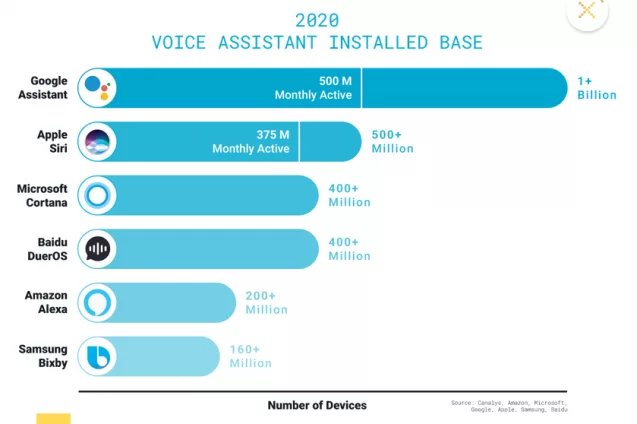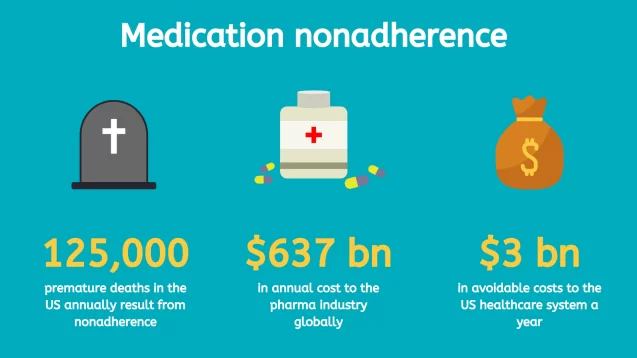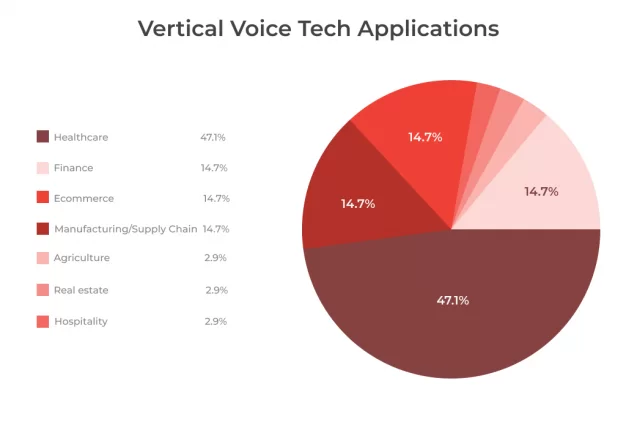Hey Alexa, what’s the weather like today? From getting our weather forecasts and morning dose of news to playing our favorite tracks or even ordering groceries, we increasingly rely on smart speakers and voice assistants, making them an integral part of our everyday lives. Research by Ampere Analysis revealed that 49% of households in the US now own a voice assistant, and this figure is even higher in the UK where 52% have a smart speaker at home.
Today, there are about 3.25 billion people in the world using voice-activated assistants. The pandemic has accelerated the adoption of voice technology even further as a safe and hygienic alternative to contacts and interactions. By 2024, the number of digital voice assistants will surpass the world’s population and will reach 8.4 billion units. The graphics below shows the active users of the most popular voice assistants/where users’ loyalty lies:
Source: TechCrunch
Fueled by AI-based speech recognition and natural language processing (NLP), voice assistants already support a variety of industries — online shopping, voice-based banking, etc. Healthcare too can leverage voice technology to benefit in a number of ways. Let’s see how.
Digital front door
In healthcare, a digital front door is a strategy that aims to effectively engage patients across all touchpoints and allow them to interact with healthcare, via their device of choice, using the self-service technology.
Conversational AI can add another dimension to these interactions and help healthcare providers connect with patients in more meaningful ways. From helping patients discover health services to connecting them with the right healthcare provider to setting an appointment, voice assistants can streamline communication and reduce the risk of patients falling through care gaps.
Case in point
Orbita, a provider of conversational voice and chat solutions for healthcare, has launched a feature-rich digital front door solution that streamlines access to care and reduces staff burden. The platform leverages conversational AI to connect patients with the appropriate level of care, schedule and appointment, check on patients pre- and post-visits, and more.
Streamlined clinical workflows
The pandemic has generated an enormous demand for health services, stretching the healthcare industry too thin. In addition to the shortage of staff and resources, healthcare is riddled with time- and labour-intensive processes. The cost of inefficient healthcare systems is staggering — US hospitals waste over $12 billion per year as a result of poor communication among care providers.
Custom healthcare solutions enhanced with voice-fueled technology can significantly accelerate internal processes so that physicians can focus on patients instead of paperwork. With the ability to recognize speech and convert it into text, voice assistants can automatically capture doctor-patient conversations and turn them into EHRs. These capabilities can further extend into coding, billing, prescription management and other processes. Nurses, too, can benefit from voice technology by leveraging it to search relevant data on doctors and patients, even on the go.
To accelerate internal workflows even further, healthcare providers can use voice-enabled CRM systems. All routine transactions like updating patient records or getting personalized reports can be performed conversationally, which enables the staff to save valuable time and focus on patients.
Case in point
Suki, a provider of voice solutions for healthcare, has developed a digital agent that leverages NLP and machine learning to retrieve information from health records, create medical notes and quickly complete administrative tasks. Armed with these capabilities, the voice assistant allows physicians to accelerate clinical workflows and reduce documentation time by 76%.
Improved accessibility
Although the healthcare industry is expected to be patient-centric, 47% of consumers admit that healthcare and life sciences are more focused on industry needs than on patients. Voice technology can help health systems better keep up with the evolving patient needs and reduce friction.
Voice-based passwords can help patients streamline access to their health records and personal information while protecting it from unauthorized use. Furthermore, conversational AI can improve accessibility and promote inclusion for patients with speech and hearing difficulties. By converting spoken words into text and vice versa, voice-enabled assistants enable patients to see who said what.
In diverse, multicultural countries voice assistants can improve access to care by reducing linguistic barriers and facilitating patient-doctor communication. By translating the conversations between practitioners and patients in real time, voice-powered solutions eliminate the need for an interpreter and minimize diagnostic errors caused by misunderstanding.
Case in point
Ava, a voice technology startup, offers a live captioning solution to empower deaf and hard-of-hearing people with a 24/7 accessible life. The solution leverages artificial intelligence as well as professionals to deliver 99% accuracy.
In France, Aalia.tech has launched Aaliatalk, a medical voice assistant, to support communication between patients and care providers who don’t speak the same language. Designed with privacy in mind, Aaliatalk also takes into account the cultural context of the patient to ensure accurate translation and effective communication.
Medication management
Medication nonadherence is on the fast track to becoming an out-of-control epidemic. A systematic review in the Annals of Internal Medicine showed that from 20 to 30% of medication prescriptions are never even filled, and about half of medications for chronic diseases are not taken as prescribed. And the burden on the healthcare system is significant, too, as shown on the graphics below.
Source: Techspert
Voice-enabled assistants can help improve medication adherence by interacting with patients in a comfortable way and regularly reminding them which medication to take and when. They can also inform the patients on the importance of complying with a health care regime, notify on the refill and schedule a visit to renew the prescription.
Case in point
Aiming to streamline in-home care, Pillo Health has launched a voice-activated assistant that helps users better manage their medication regimen by reminding them about dosages at predefined time and offering research-based care plans. In addition, the solution leverages facial recognition to deliver the medication information to the right person.
Care for senior citizens
Another challenge that health services today are faced with is the rapid aging of the global population. Increasing life expectancies, declining fertility rates are among the factors that contribute to the situation — by 2050, senior population is expected to reach 2.1 billion.
As healthcare seeks to adapt to new challenges, voice-first technology comes to the rescue as a more intuitive and simple user interface. Voice assistants can help older populations to prolong their independence and improve in-home care by providing companionship, promoting medication adherence, and sending alerts to health professionals if help is needed. Voice-enabled assistants can also help with a number of routine tasks like checking a calendar or ordering a taxi, which is especially useful for the elders with vision and mobility issues.
Case in point
Volara, a provider of voice-based customer engagement software, has partnered with LeadingAge and other healthcare organizations to support seniors living in residential communities. To that end, Volara provided 9,000 Google Nest Hub Max, voice assistants with screen, to the elders to provide instant access to information and entertainment and connect with their loved ones.
Voice-based diagnostics
A new but promising field for applying voice technology in healthcare is diagnostics based on vocal biomarkers. Essentially, a vocal or voice-based biomarker is a signal or characteristic that can be detected in one’s voice. By leveraging sophisticated machine learning algorithms, these biomarkers are assessed to find correlation with a variety of medical conditions like obstructive pulmonary disease, Parkinson’s disease, pulmonary coronary artery disease, and even COVID-19.
Case in point
Vocal biomarker startup Sonde Health is pioneering the approach with a proprietary diagnostic tech that enables doctors and patients to make more informed decisions. The solution analyzes speech segments to identify if a person is at risk for developing a range of conditions, from dementia to depression.
Challenges to implementing voice tech in healthcare
Just like any technology, voice-based applications for eHealth come with a particular set of challenges that need to be addressed from the start in a healthcare software development project.
- Voice must be treated as any other patient information and must be adequately protected. Data encryption, secure data transmission protocols, role-based access control, and other security measures must be implemented to ensure robust security.
- HIPAA compliance. Any custom healthcare solution that deals with protected health information must comply with HIPAA regulations to guarantee patients’ privacy. Amazon’s Alexa, for example, supports HIPAA-compliant skills for healthcare applications.
- Since voice-based applications can be used by different people, they must be sensitive towards the accent of the speaker in order to accurately understand and perform the required action.
- Particular attention must be paid to the design of voice-based interactions to make navigation as seamless as possible. Include visual or vibrational cues to notify users on when voice assistants are ready for use, when they are listening or ready for response.
- And last but not least, the cost of voice tech integration needs to be affordable in order to support tech adoption and reap the benefits of voice-powered healthcare.
The bottom line
Voice-enabled applications appear to be the next frontier in human-technology interactions. And among the variety of industries that leverage voice technology, healthcare is particularly ripe with use cases — voice-based apps for the healthcare industry account for 47% of the voice recognition solutions market.
Source: Codeit
From improving medication compliance to accelerating hospital workflows to enhancing senior care, voice-based applications can help healthcare providers deliver better patient experiences and accelerate the shift towards value-based care. But in order to fully harness the technology, it’s important to ensure smooth navigation and ease-of-use as well as implement privacy and security controls to protect patients’ sensitive information and give them peace of mind.
If you need to implement voice recognition capabilities or develop a custom healthcare solution from scratch, Elinext can help. Have a look at our portfolio of Fallstudien to see how we have solved unique business challenges for our clients.












